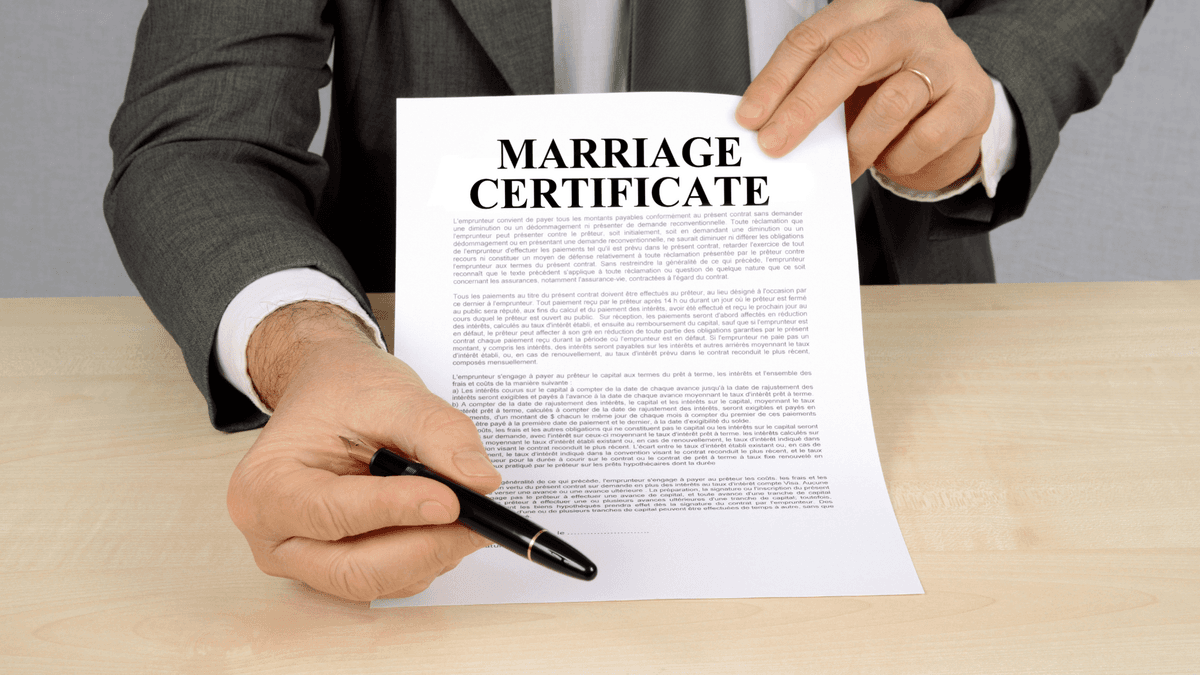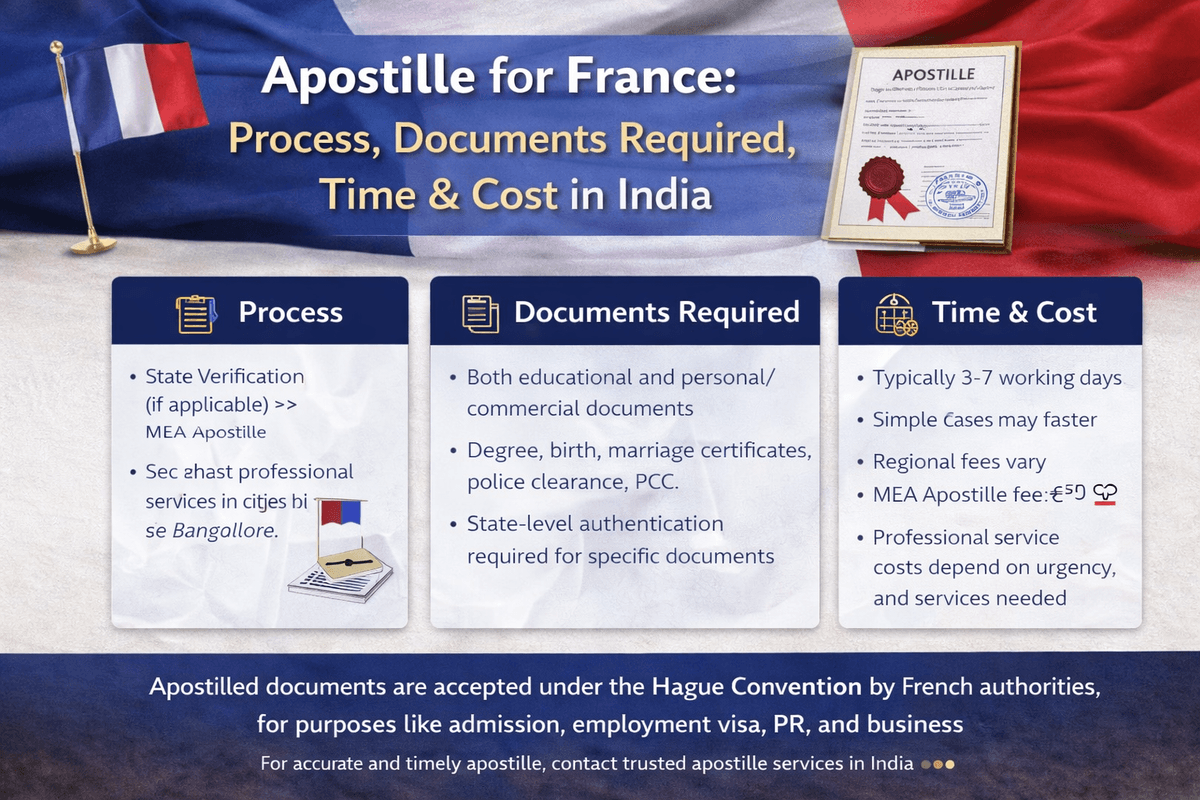
Everything You Need to Know About Embassy Attestation in India
In today's globalized world, individuals from India are increasingly seeking opportunities abroad for education, employment, migration, or business expansion. For these purposes, presenting valid, verified documents to foreign authorities is mandatory. One of the most important steps in this validation process is embassy attestation. If you're planning to move to the UAE, Qatar, Kuwait, Saudi Arabia, or any other foreign country, understanding the details of embassy attestation in India is crucial. This comprehensive blog provides an in-depth overview of what embassy attestation is, why it's required, how it works, and country-specific processes for Gulf nations.
What is Embassy Attestation?
Embassy attestation is the process of authenticating your documents through the embassy or consulate of the country you intend to visit. It is the final step in the document authentication chain and confirms the validity of certificates like educational degrees, marriage and birth certificates, commercial documents, and more. Embassy attestation is essential for foreign governments to recognize your documents as legally valid within their jurisdiction.
Why is Embassy Attestation Important?
Embassy attestation is necessary for many reasons, including:
Securing employment visas in foreign countries
Applying for higher education abroad
Family or dependent visa processing
Starting or expanding a business overseas
Registering births or marriages abroad
Migration or permanent residency applications
Countries in the Gulf Cooperation Council (GCC) like the UAE, Qatar, Kuwait, and Saudi Arabia have stringent document verification policies. They mandate embassy attestation for almost all categories of documents.
Who Needs Embassy Attestation?
Students going abroad for higher education
Job seekers with offers in Gulf countries
Business professionals setting up overseas operations
Families planning to relocate or apply for a dependent visa
NRIs and citizens needing document recognition abroad
General Process of Embassy Attestation in India
The embassy attestation process in India typically follows these steps:
Step 1: Notary Attestation
The document is first attested by a local notary public. This ensures the document is genuine at the regional level.
Step 2: State Authentication
The next step involves attestation by the relevant State Home Department or HRD department (for educational documents).
Step 3: MEA Attestation
Once state-level verification is done, the document is sent to the Ministry of External Affairs (MEA) for central government attestation.
Step 4: Embassy Attestation
Finally, the document is submitted to the embassy or consulate of the destination country for attestation.
Types of Documents That Require Embassy Attestation
Educational Documents
Degree certificates
Diploma certificates
SSC / HSC certificates
Personal Documents
Birth certificates
Marriage certificates
Divorce certificates
Medical records
Commercial Documents
Power of attorney
Company registration
Memorandum of association
Invoices
Embassy Attestation for UAE
The United Arab Emirates (UAE) is a top destination for Indian professionals and students. To get your documents accepted in the UAE, Embassy Attestation for UAE is compulsory.
Documents must undergo notarization, state authentication, and MEA attestation before they are attested by the UAE Embassy. Whether you're applying for a job, student visa, or family sponsorship, your documents won’t be recognized without this step.
Time Required: 8 to 12 business days
Fees: Vary by document type and urgency
Embassy Attestation for Qatar
Embassy Attestation for Qatar is required for Indians seeking jobs or higher education in the country. Qatar's Ministry of Foreign Affairs (MOFA) only accepts documents attested by its embassy.
For educational certificates, HRD authentication is crucial before MEA and Qatar Embassy attestation. Commercial and personal documents also require state-level authentication before MEA and embassy submission.
Time Required: 10 to 15 business days
Fees: INR 3,000 to INR 6,000 depending on document type
Embassy Attestation for Kuwait
To legally work or reside in Kuwait, your documents must go through Embassy Attestation for Kuwait. From employment contracts to academic credentials, every document must be verified by the Kuwait Embassy in India.
The process begins with notary and home/state authentication followed by MEA attestation. After these steps, documents can be submitted to the Kuwait Embassy.
Time Required: 8 to 12 working days
Fees: INR 3,500 to INR 7,000 (varies with urgency)
Embassy Attestation for Saudi Arabia
Embassy Attestation for Saudi Arabia is known for its detailed verification process. Whether it's a work visa, family visa, or education visa, the Kingdom of Saudi Arabia (KSA) mandates thorough document attestation.
Educational documents usually require HRD attestation before MEA and Saudi Embassy attestation. Commercial and personal documents also undergo the same chain of authentication.
Time Required: 12 to 20 business days
Fees: INR 4,000 to INR 8,500 depending on document category
Common Challenges in Embassy Attestation
Incomplete documentation: Missing notarization or incorrect format can delay the process.
Laminated certificates: Laminated documents are often rejected.
Wrong attestation order: Skipping any step (like MEA) can result in embassy rejection.
Unreliable agents: Choosing an unverified service provider can risk your original documents.
Tips for a Smooth Embassy Attestation Process
Ensure your original documents are clean, unlaminated, and in good condition.
Verify the latest requirements from the respective embassy’s official website.
Hire a reliable attestation agency with experience in embassy coordination.
Keep extra photocopies and passport-sized photos ready.
Apply early to account for processing delays, especially during peak seasons.
How Professional Attestation Services Can Help
Professional attestation service providers streamline the entire process, including:
Picking up documents from your location
Ensuring all pre-attestation steps are completed
Submitting to the MEA and the embassy
Tracking progress and ensuring faster turnaround
Returning documents safely and on time
They are particularly helpful for:
Working professionals with limited time
Those unfamiliar with government offices
People applying for multiple country attestation
Final Thoughts
Whether you're a student, professional, entrepreneur, or parent, the importance of embassy attestation in India cannot be overstated. It's a legally mandated process that ensures your documents are accepted abroad—be it for employment, education, or residency.
With different Gulf countries like the UAE, Qatar, Kuwait, and Saudi Arabia having specific requirements, it's vital to understand and prepare accordingly. From notary verification to MEA authentication and finally embassy approval, each step is essential for successful visa processing or legal documentation overseas.
Using trusted attestation services can significantly ease the burden and avoid costly delays. By staying informed and proactive, you can ensure your journey abroad—whether for a new job, university program, or family life—begins without hurdles.
In short, whether you’re looking for Embassy Attestation for UAE, Embassy Attestation for Qatar, Embassy Attestation for Kuwait, or Embassy Attestation for Saudi Arabia, the process starts at home, but its impact travels globally.
If you need help with your attestation process, consult a certified agency that offers reliable and transparent services tailored to your destination country.
- All
- Apostille
- Attestation
- Australia Apostille
- Austria Apostille
- Bahrain Attestation
- China Attestation
- Egypt Attestation
- France Apostille
- Germany Apostille
- HRD
- Italy Apostille
- Kuwait Attestation
- Lithuania Apostille
- MEA
- Malaysia Attestation
- Mexico Apostille
- Netherlands Apostille
- Nigeria Attestation
- Oman Apostille
- PCC
- Philippines Attestation
- Qatar Attestation
- Saudi Arabia Attestation
- Taiwan Attestation
- Translation
- UAE Attestation
- UK Apostille
- USA Apostille
- Vietnam Attestation
- Visa Stamping




